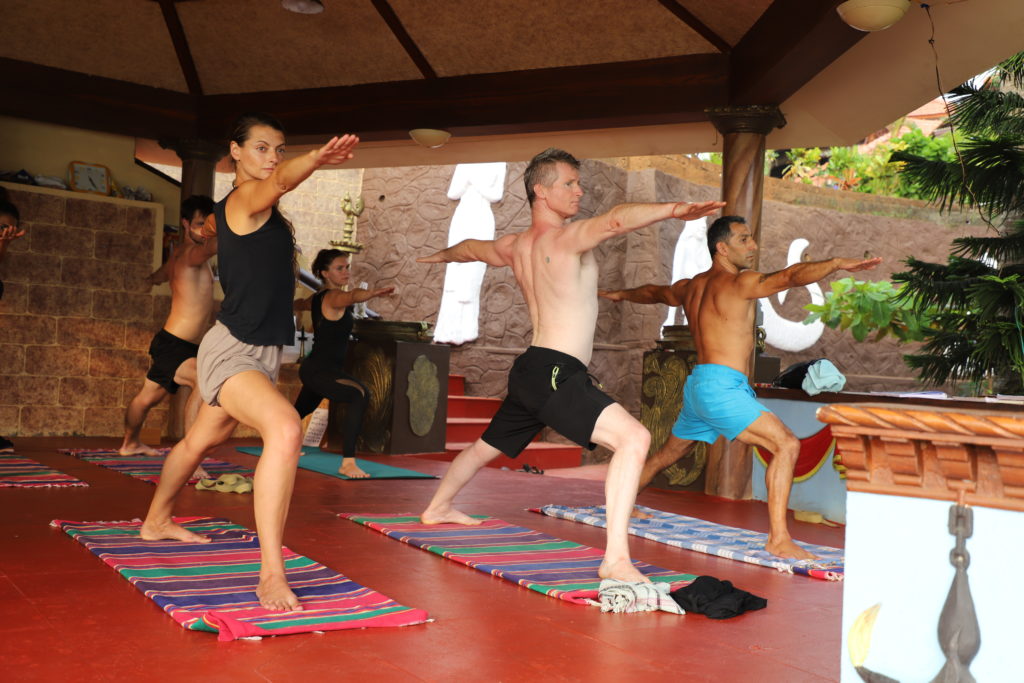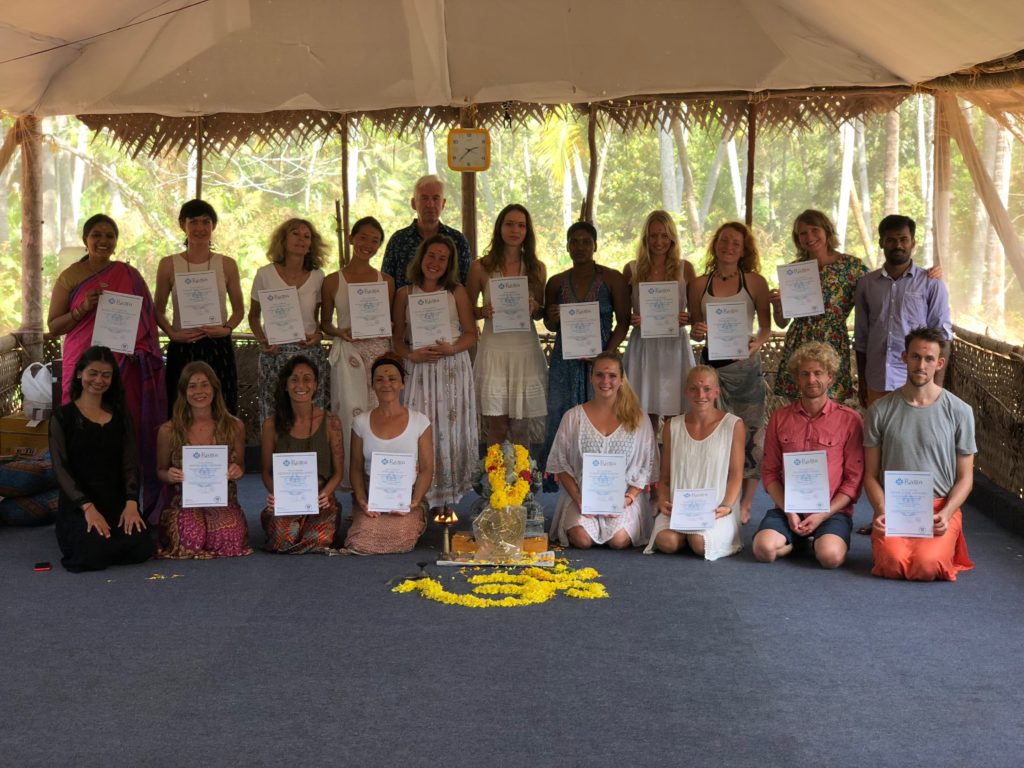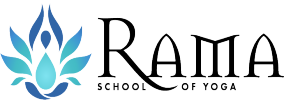300-HOUR YOGA TTC OVERVIEW
Our 300-hour Hatha and Ashtanga vinyasa Advanced Yoga Teacher Training course is a intensive program designed to deepen your already existing knowledge and foundations of yoga. You must have already completed a 200 hr yoga teacher training in any style to be eligible to enrol on our 300-hour Yoga Teacher Training Courses.
The primary focus of this course will be on sequencing Hatha and Ashtanga vinyasa primary series style yoga classes. Major attention will be given to the principles, technical aspects, and structural components of a Hatha and Ashtanga class. Much of your time will be spent on expanding your knowledge of asanas while paying attention to the key alignments and anatomical structures in order to deepen your own practice as well as learning how to teach others safely. In addition, you will gain in-depth knowledge of pranayama, meditation and philosophy.
SPIRITUALITY, YOGA PHILOSOPHY AND HATHA YOGA
“When we direct our awareness to understanding the external world, it is called ‘science’, and when we direct that same awareness inward to understand our true self, it is called ‘spirituality’. In its true context, yoga is at least 99% a lifestyle focused on non-physical practices and philosophy, with asana making up perhaps only 1%. Yoga philosophy is a vast subject that may take a lifetime to understand, even with consistent study and the guidance of a guru. However, in our philosophy classes, we will do our best to provide as much knowledge as possible. We will cover all the major aspects of yoga philosophy so that you can gain a basic understanding of what yoga is. Our aim is to equip you with the knowledge and tools to deepen your own spiritual practice and help others discover the gift of yoga. Hatha yoga philosophy will be the core of our philosophy section in this course.”
300-HOUR YOGA TEACHER TRAINING COURSE DETAILS
This course places major emphasis on Advance Hatha yoga and Ashtanga vinyasa practice, hands-on adjustments, The philosophy is based on Bhagavad Gita and its applications in daily life. Students will study and practice pranayama, chakra and metaphysical meditations, and Yoga Nidra. The anatomical highlight will be on practical applications of functional anatomy and comparative anatomy.
TEACHING METHODOLOGIES
- Teaching practice, receiving and giving feedback
- Principles of demonstration
- Observing, assisting and correcting
- Instructions guidelines, teaching styles, qualities of a teacher
- Voice projection, and floor presence
- Different process of learning
- Planning and structuring a class
- Alignment and hands-on-adjustments theory and practice
- Dealing with injuries and safety precautions.
PHILOSOPHY
The philosophy part of this course will be based mainly on Hatha yoga. Apart from the basics of yoga and history there will be heavy emphasis on the nadis, chakras and kundalini system. The details of the complete philosophy to be taught in this course is as follows:
- Origin and history of yoga
- The need of yoga philosophy and Aim of yoga
- Introduction to yoga philosophy
- The Vedas
- The Upanishads
- Darshanas
- Four main paths of yoga: Raja yoga, Gyana Yoga, Karma Yoga, Bhakti Yoga
- Yoga as a lifestyle
- Ashtanga Yoga
- Eights limbs
- Overview of Patanjali yoga sutras
- Hatha yoga: Philosophy and its science
- Nadi system: The pranic (psychic) energy network
- The three major nadis: Ida, Pingla, Sushumna
- The kundalini and chakra system
- The seven chakras
- Importance of yogic cleansing techniques in hatha yoga
- Shatkarmas: The yogic cleansing techniques
- Jalneti, Trataka, Abdominal Cleansing (shankhaprakshalana), Vaman Dhauti etc
- Mudras: A scientific look at mudras
- Mudras: The Five Groups
- Hasta Mudras: Jnana Mudra, Chin Mudra, Yoni Mudra, Bhairava Mudra, Hridaya Mudra
- Mana (head) Mudras: Shambhavi Mudra, Nasikagra Mudra, Khechari Mudra, Kaki Mudra, Bhajangini Mudra, Bhoochari Mudra, Akashi Mudra, Shanmukhi Mudra, Unmani Mudra
- Kaya (postural) Mudras: Vipareeta Karani mudra, Pashinee Mudra, Prana Mudra, Yoga Mudra, Manduki Mudra, Tadagi Mudra
- Bandha (lock) Mudras: Maha Mudra, Mahabheda Mudra, Maha Vedha Mudra
- Adhara (perineal Mudra): Ashwini Mudra, Vajroli/sahajoli Mudra
- Bandhas: The science behind it
- Importance asana & pranayama in hatha yoga
- Agnisar kriya and nauli
- Three gunas: Satva, Rajas, Tamas
- Introduction to yoga nidra


PRANAYAMA & MEDITATION
- Prana, breath, and pranayama
- Four aspects of pranayama: Pooraka, rechaka, antar kumbhaka, bahir kumbhaka
- The pranic body: Annamaya kosha, manomaya kosha, pranamaya kosha, vijnanamaya kosha, ananadamaya kosha
- Five types of prana: prana, apana, samana, udana, vyana
- How to practice and teach pranayama
- Types of pranayama you will practice during the course: abdominal breathing, yogic breathing, nadi shodhana, kapalbhati, bhastrika pranayama, ujjayi, bhramari, surya bhedana pranayama, sheetali and shitkari pranayama, advanced pranayama with mudras and bandhas
- What is meditation and Its importance?
- Meditation and the brain
- Types of meditation
- How to practice and teach meditation
- Types of meditations to be covered during the course: Anapanasati and vipassana, soham meditation, chakra meditation, kundalini meditation, tratak meditation, antarmauna, yoga nidra
ANATOMY
- Human physical anatomy and physiology (bodily systems, organs, etc.) and energy anatomy and physiology (chakras, nadis, etc). Includes the study of the anatomical subject and the application of its principles to yoga practice (benefits, contraindications, healthy patterns of movement, among others).
- Practical anatomy with a major emphasis on muscular and skeletal structures and in-depth study of anatomical and skeletal differences (i.e. compression, tension, and proportion and orientation theory).
- Introduction to different body systems: skeletal system, muscular system, connective tissue, nervous system, breathing and respiratory system, and major joints of the body.
- Understanding of yoga asanas from an anatomical perspective.
- Therapeutic applications of postures and working with injuries in asana class.
Sample Schedule [Monday to Friday]
| 05:30– 06:00 | Pranayama |
| 06:00 – 7:00 | Adjustment & Alignment |
| 7:00–8:45 | Hatha Yoga |
| 9:00–10:15 | Breakfast |
| 10:15–11:15 | Yoga & Samkhya Philosophy |
| 11:00–12:30 | Art of Teaching & Mechanics of Asana |
| 12:30–14:45 | Lunch & Rest |
| 14:45–15:45 | Anatomy & Physiology |
| 16:00–17:45 | Ashtanga Vinyasa |
| 18:30–19:30 | Meditation |
| 19:30–20:30 | Dinner |
Sunday
10:00-11:15 Yogic Texts( Optional)
300HR YOGA TEACHER TRAINING DATES
1– 03 Oct-23 to 02 Nov-23
2 – 03 Nov-23 to 02 Dec-23
3 – 06 Jan-24 to 05 Feb-24
4 – 06 Feb-24 to 05 Mar-24
5 – 06 Mar-24 to 05 Apr-24
MORE INFO:
1 – Advance payment for seat confirmation: 390 USD.
2 – Cancellation– Non Refundable but you can postpone your TTC.
3 – Fees include food, Accommodation, Yoga classes, a Field trip, Ayurvedic consultations, and a Welcome kit.
4 – This is Yoga Alliance Certified Yoga TTC.




